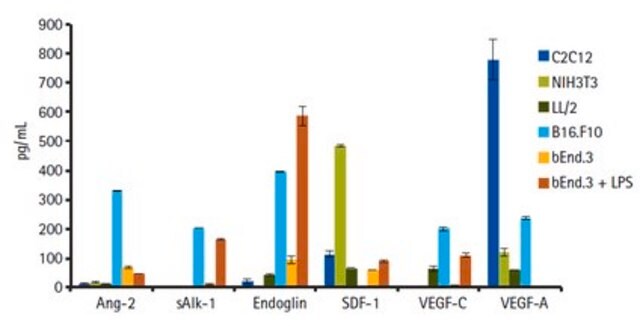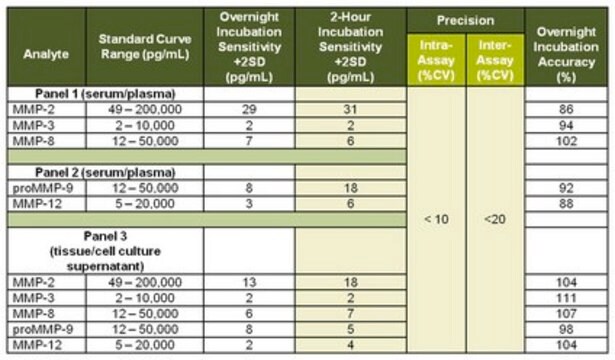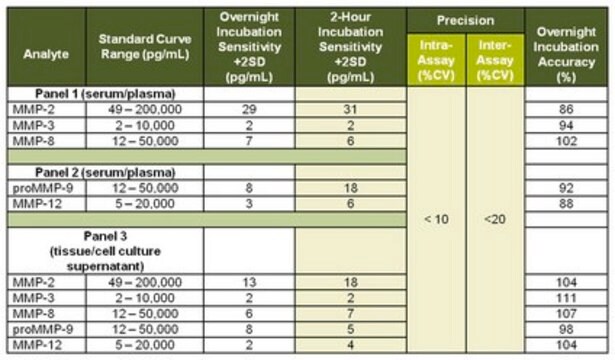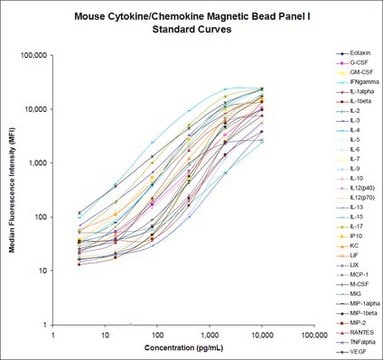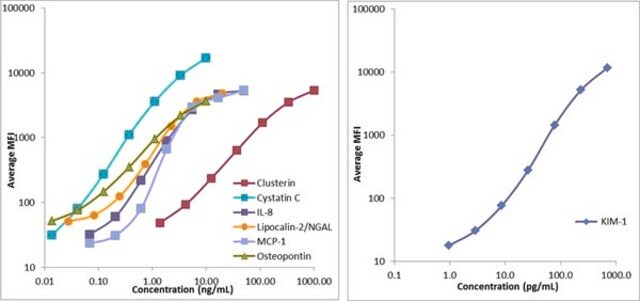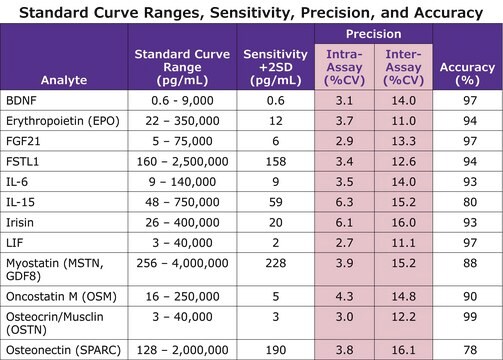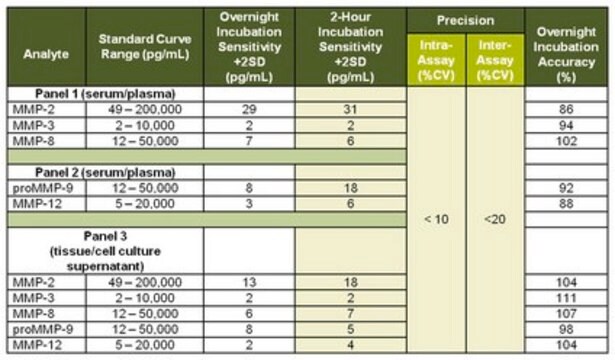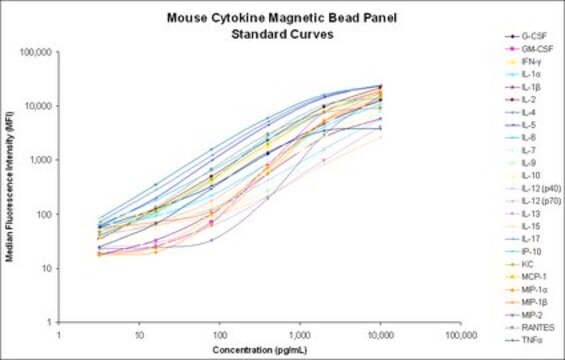MSCRMAG-42K
MILLIPLEX® Mouse Soluble Cytokine Receptor Magnetic Bead Panel - Immunology Multiplex Assay
Simultaneously analyze multiple cytokine and chemokine biomarkers with Bead-Based Multiplex Assays using the Luminex technology, in mouse serum, plasma and cell culture samples.
About This Item
Productos recomendados
Quality Level
species reactivity
mouse
manufacturer/tradename
Milliplex®
assay range
accuracy: 89-98%
standard curve range: 12.2-50,000 pg/mL
(sIL-1RI, sIL-1RII, sIL-2Rα, sIL-4R, sTNFRII)
standard curve range: 24.4-100,000 pg/mL
(sCD30, sgp130, sIL-6R, sRAGE, sVEGFR1, sVEGFR2, sVEGFR3)
standard curve range: 4.9-20,000 pg/mL
(sTNFRI)
technique(s)
multiplexing: suitable
detection method
fluorometric (Luminex xMAP)
shipped in
wet ice
General description
The MILLIPLEX® Mouse Soluble Cytokine Receptor Panel contains 13 metastasis biomarkers that have also been identified in a variety of therapeutic areas. Coupled with the Luminex® xMAP® platform in bead format, this panel enables researchers to focus on discovery with the advantage of simultaneous quantitative multiplex detection leading to speed and sensitivity.
Panel Type: Cytokines/Chemokines
Application
- Analytes: sCD30 (sTNFRSF8), sgp130, sIL-1RI (sCD121a), sIL-1RII (sCD121b), sIL-2Rα (sCD25), sIL-4R (sCD124), sIL-6R (sCD126), sRAGE, sTNFRI (sTNFRSF1A), sTNFRII (sTNFRSF1B), sVEGFR1 (sFlt-1), sVEGFR2 (sFlk-1), sVEGFR3 (sFlt-4)
- Recommended Sample type: serum, plasma and cell culture
- Recommended Sample dilution: 1:5 diluted serum and plasma
- Assay Run Time: Overnight
- Research Category: Inflammation & Immunology
Features and Benefits
Packaging
Other Notes
Legal Information
Disclaimer
signalword
Warning
Hazard Classifications
Acute Tox. 4 Dermal - Acute Tox. 4 Inhalation - Acute Tox. 4 Oral - Aquatic Chronic 2 - Eye Irrit. 2 - Skin Irrit. 2 - Skin Sens. 1 - STOT SE 3
target_organs
Respiratory system
Storage Class
10 - Combustible liquids
Certificados de análisis (COA)
Busque Certificados de análisis (COA) introduciendo el número de lote del producto. Los números de lote se encuentran en la etiqueta del producto después de las palabras «Lot» o «Batch»
¿Ya tiene este producto?
Encuentre la documentación para los productos que ha comprado recientemente en la Biblioteca de documentos.
Nuestro equipo de científicos tiene experiencia en todas las áreas de investigación: Ciencias de la vida, Ciencia de los materiales, Síntesis química, Cromatografía, Analítica y muchas otras.
Póngase en contacto con el Servicio técnico